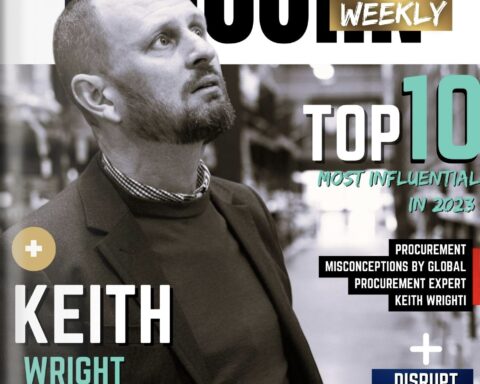Purely Elizabeth incorporates regenerative organic ingredients, starting with its Original Ancient … [+]
Granola brand Purely Elizabeth is foraying into regenerative agriculture this month with one of their most popular products, Ancient Grain Granola, hitting Whole Foods now with regenerative ingredients. It’s the beginning of a partnership with Colorado-based Mad Agriculture, a non-profit organization helping companies like Purely Elizabeth collect the data needed to ensure that regenerative agriculture is having the impact it claims to, and linking companies to growers.
“I’ve always been interested in nutrition and that’s why regenerative agriculture excites me,” says Elizabeth Stein, founder and CEO, of Purely Elizabeth. “So now, we’re working on connecting the dots between nutrition and regenerative ag.”
Mad Ag’s Elizabeth Candelario adds to this correlation: “While there has always been a common sense acknowledgement that healthy soil is the foundation for growing healthy crops, there is growing scientific data that proves that regenerative agriculture delivers nutrient dense and delicious food.”
Mad Ag is working to build out this data, by working alongside farmers and doing long-term studies with a few select farms.
In addition to sourcing regenerative organic coconut oil and sugar from Sri Lanka and Java, Indonesia, respectively, Purely Elizabeth is working with farmers in Montana and Idaho to source 5% of their oats. Eventually, Stein wants to get that percentage up to 25% coming from an assortment of regenerative organic farms. But in the next three years, she wants to aim even further, getting one-third of all their ingredients from regenerative organic sources.
While some farms are already practicing organic, such as their oat supplier in Montana, others may not be. So there’s a learning curve and transitional period, Stein explains.
By partnering with Mad Ag, not only does Stein get more data on what’s happening at the farm-level, but farmers get the support they need to.
“The regenerative revolution in agriculture depends on the commitment of brands to source from regenerative (which we believe includes organic) farms. Farmers won’t grow what they can’t sell,” Candelario explains. “Buyers are absolutely critical to encourage farmers to move from conventional to regenerative agriculture. Buying crops from regenerative farms (and those that are transitioning) empowers farmers to diversify their rotations and invest in biodiversity, which enhances many of the ecological functions of a farm including carbon sequestration, water quality, the diversity of insects, plants, birds and much more.”
In addition to literature reviews and farmer interviews, Mad Ag will also do in-depth on-farm research where they’ll monitor several factors over a 10-year period: soil health; biodiversity across crops, livestock, plants, birds and insects; regenerative practices; and nutritional quality of ingredients (testing for antioxidants, polyphenols, protein and amino acids, mineral content, and more).
Although the regenerative “tent” has varying definitions of what exactly is regenerative farming, Candelario says that Mad Ag certainly pushes for farmers to be organic, arguing that organic farming is not only beneficial for soil health but also for their wallet.
“On the topline, they enjoy greater price premiums for their crops, and direct trade opportunities with buyers, such as Purely Elizabeth who provide additional benefits of long-term relationships and stability in buyers,” she says. “On the bottom line, organic farmers do not rely on synthetic inputs like fertilizers, pesticides and herbicides, but rather leverage the benefits of cover cropping for managing fertility and increasing biodiversity to support beneficial insects, all which lower costs and increase soil health. We want our farmers to become free from having to purchase and import synthetic fertilizers, pesticides, herbicides, and of course GMOs.”
One study even noted that organic farmers can make more money than conventional farmers, in certain instances. So despite the popular narrative that organic farming is not financially viable, Candelario argues otherwise.
For Stein, working with Mad Ag, has been an added bonus, given their emphasis on research and data to support regenerative claims. She hopes other companies follow suit, and that the commitment to regenerative agriculture deepens in the food industry. And although both are aware of the greenwashing already taking place with regenerative farming, they’re optimistic that data-driven models, rooted in certifications and documented practices, will prevail.
For Stein, regenerative agriculture is one part of a broader story with Purely Elizabeth. For instance, she’s also working with Planet FWD to map out their carbon emissions as a company by 2024, and then work towards reducing it, as much as possible.
When speaking with grocery buyers, she notes, some supermarkets and big box retailers are very much interested in regenerative agriculture. But even if the marketing wasn’t dictating it, she says she would be committed to it. “It’s essential, in my perspective.”











